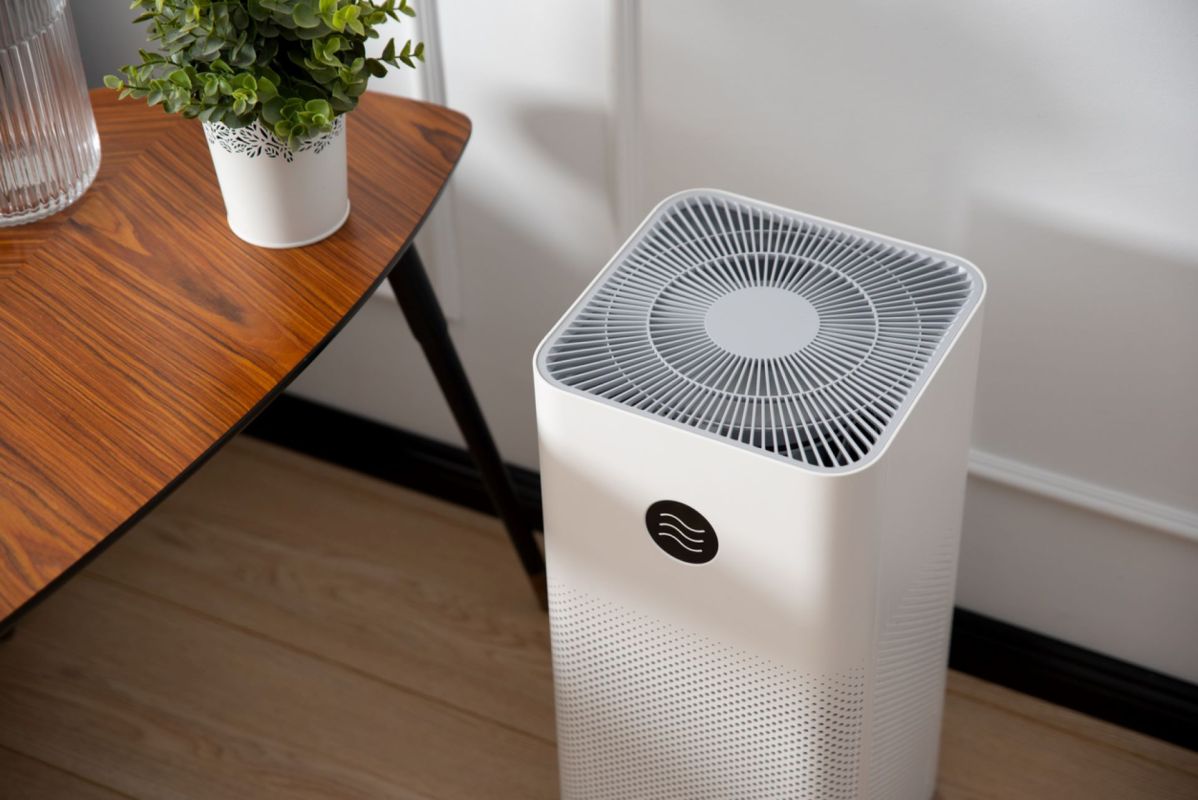Every day, your environment can either improve or harm your health in countless ways.
One of the biggest but most invisible factors in that equation is air quality. As the EPA has explained, particulates in the air can have a dramatic health impact, contributing to your risk for everything from short-term lung irritation to your long-term risk of asthma and heart attacks, and causing about 400,000 deaths per year in Europe alone.
Today, there are online tools to help you determine the pollution levels outside and stay in on bad days — but that only helps if your indoor air quality is good. Luckily, you can fix your indoor air and give your health a long-term boost with an air purifier.
What is an air purifier?
An air filter or air purifier is a simple, portable device that you can plug into a wall outlet. They come in a range of sizes from many different brands, and there are different types of filters to choose from depending on the amount and type of air pollution you most often deal with.
Even a basic filter can strain out dust, fur, pollen, and other large materials, while finer filters can remove tiny particles — including bacteria and viruses. Adding an air quality monitor will help you know when to run your air purifier.
How will an air purifier save me money?
According to a shocking recent study, breathing dirty air can have roughly the same negative health impact (measured in global life expectancy) as smoking.
Sadly, more and more people are being exposed to this kind of dangerous air pollution as the world gets hotter. Anything you can do to reduce your exposure could save you from hefty medical bills later on, and in the meantime, you'll be improving the environment of your home and your quality of life — all with one $100-to-$500 appliance.
How do I choose a filter?
One of the most problematic kinds of air pollution is PM2.5, or particles under 2.5 micrometers in size (about 30 times smaller than the diameter of a human hair, per the EPA).
These particles are too small for most air filters to catch, so if PM2.5 pollution is a problem in your area, you need a HEPA-rated filter. HEPA filters are designed to remove the very finest particles from the air and are the highest standard in household air quality. We love the Blue Pure 211i Max, which costs just $350 and is unbelievably quiet.
You can also look for charcoal filtration, which soaks up unpleasant odors from the air, but be aware that it still lets particulates through. Ozone-producing air purifiers are not recommended because excess ozone comes with its own health risks.
Join our free newsletter for easy tips to save more, waste less, and help yourself while helping the planet.









